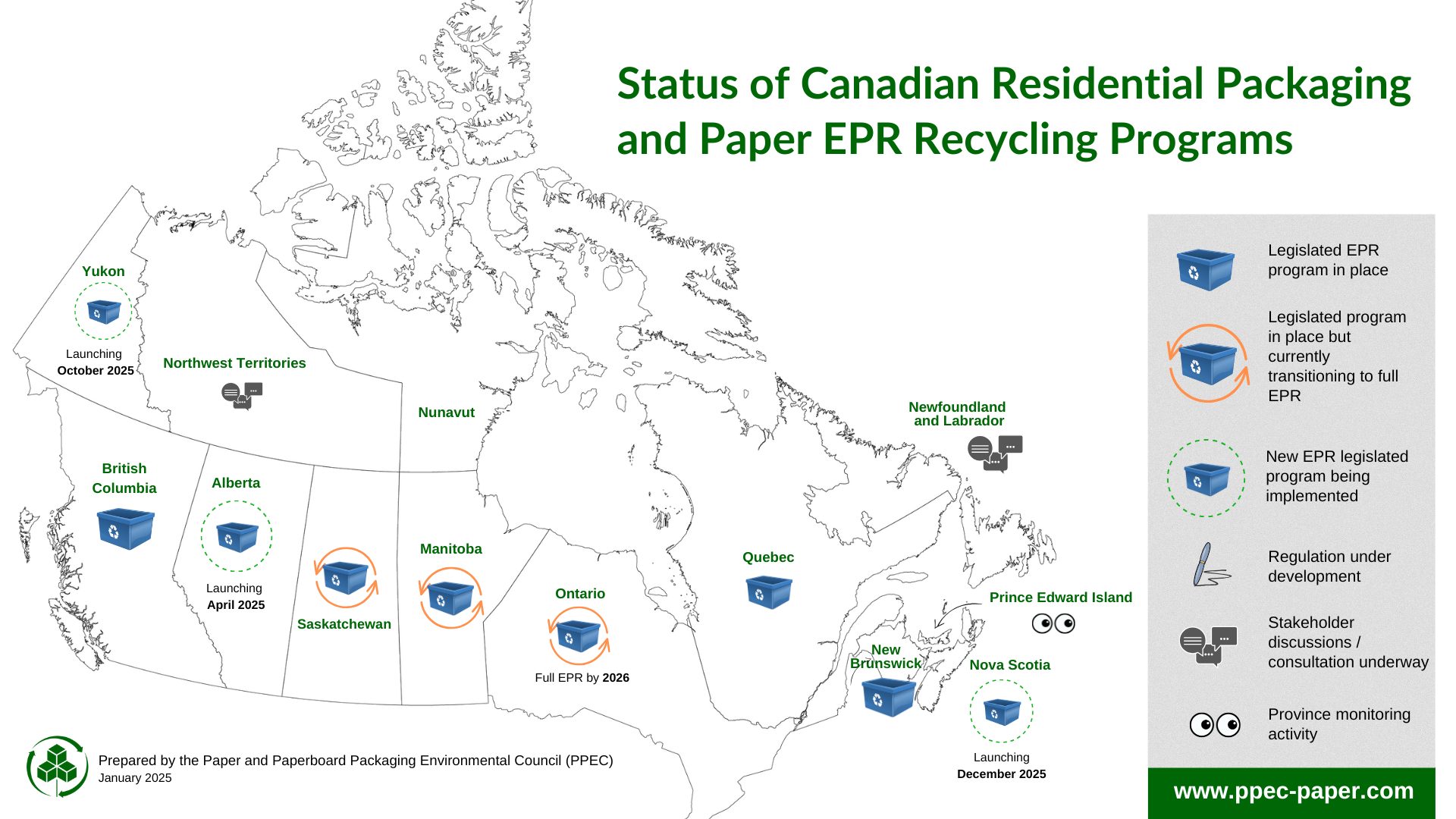Recycling programs are critical to the paper packaging industry. Extended Producer Responsibility (EPR) is a policy approach in which a producer – a business that makes or sells obligated materials – is made financially and/or physically responsible for ensuring their products and packaging are properly managed at the end of their life.
EPR legislated programs are either full producer responsibility models, where producers fund and operate recycling programs, or cost-share models where producers fund a portion of costs of programs run by municipalities as part of their waste management services.
Businesses obligated by legislated programs are required to submit annual reports containing the weights of materials put into the marketplace in that province, and to pay corresponding fees for those designated materials, which are used to fund the costs of recycling.
In Canada, EPR recycling programs for residential paper and packaging products are legislated by the provincial government. While paper and packaging from the Industrial, Commercial, and Institutional (IC&I) sector – which includes office buildings, factories, malls, etc. -- is managed separately in business-to-business relationships.
EPR is in the midst of a significant transition in Canada, with many of the provincially-mandated residential programs transitioning from cost-share models to full EPR models. A status of the programs is illustrated in the below map.
About EPR and Canada's Paper Packaging Industry
PPEC represents its members to the provincial and federal government on Canadian printed paper and packaging (PPP) recycling and Extended Producer Responsibility, or “EPR,” regulatory and policy issues.
Whether governments are introducing new regulations to introduce EPR for PPP, or consulting on existing programs to transition current programs to EPR models, PPEC is at the table with the government and participates in consultations to voice our key issues:
- Promoting a level playing field between materials and fair stewardship fees
- Understanding and addressing material contamination to ensure supply and quality of feedstocks
- Practical and fair waste diversion targets based on data, collection and processing capacity, and availability of end markets
- The importance of education and the consumer’s role in successful recycling programs
- Having up-to-date and complete data to make evidence-based policy and regulatory decision
- Understanding the differences between what is collected, diverted, and actually recycled
- Banning cardboard boxes from landfill
- EPR should be limited to residential PPP, and is not appropriate for managing paper packaging in the Industrial, Commercial, and Institutional (IC&I) sector
- Timelines for consultation, regulation development, program plan development and implementation must be carefully considered
While PPEC members have not historically been obligated stewards of these programs – our members typically engage in business-to-business transactions, and do not directly supply finished products to consumer – such recycling programs are critical to our industry.
Recycled materials represent an important part of our industry’s circular economy to manufacturing the three major paper packaging grades in Canada. PPEC’s membership represents several different components of our industry’s recycling supply chain, not just as providers of recyclable paper-based packaging, but also as processors of collected paper materials, and as mills who are recycling and reusing the collected materials, which allows them to be remade into new paper packaging products again and again, keeping valuable raw material out of landfill.
Subscribe to our communications
Sign up to receive PPEC's blog and updates.

